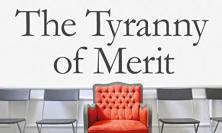This book by the former Governor of the Bank of England is a very welcome contribution to the public debate about how we wish to live. With the recovery of sovereignty which is supposed to follow the United Kingdom’s departure from the European Union, the country is challenged to identify its priorities. What do we want, in terms of our wished-for quality of life, the degrees of inequality we will tolerate, the boundaries of exclusion and inclusion we will accept? These challenges are made more concrete by the impact of the Covid-19 pandemic, the country’s response to which has revealed its operative priorities: the protection of the NHS relative to the maintenance of the economy; the marginalisation of the care sector relative to the NHS; lack of resilience in provision of basic education in comparison with the university sector. Carney’s weighty volume, in sixteen chapters in three sections, invites an extended consideration of the values we will require in the recovery, and that he would wish us to adopt. He makes the case for solidarity, fairness, responsibility, resilience, sustainability, dynamism and humility (pp.8, 472).
The first section recalls the rise of the market economy, and the resulting tendency to reduce values to a single category of economic value, measured by price. That is part of the meaning of the ‘s’ in parentheses in the book’s title. The second section reviews the three major crises of values in recent years: the global financial crisis, the Covid crisis and the climate crisis. The third of these is of particular interest to Carney, who has taken on the role of UN Special Envoy for Climate Action and Finance. He also advises the Prime Minister in the preparation for COP 26 to be held in Glasgow this year. In all of these crises, the questions of value are highlighted: ‘Climate change is setting in train a vicious cycle in which rising sea levels and more extreme weather are damaging property, forcing migration, impairing assets and reducing the productivity of work. And now the Covid crisis has exposed the tragic folly of undervaluing resilience and ignoring systemic risks’ (p.264). The third section draws out the implications for values-based leadership, for business corporations, for investors and for countries. He aspires to what he calls ‘a divine coincidence’, of ‘doing well by doing good’ (p.413), as an ambition for companies who must have an eye to the bottom line of shareholder value, while at the same time taking on responsibilities to stakeholders in the wider society. He engages in an extended reflection on the fiduciary duty of executives, charged to serve the interests of the corporation. But what are the interests of the corporation and how are they to be defined? For instance, long term interests of sustainability and social acceptability that are conditions for the purely economic functioning of the firm are not themselves economic in nature. In some countries, lawmakers are accommodating this wider stakeholder view of business purpose in legislation. Carney cites the French entreprise à mission designation, and the use made of it by the French food producer Danone under the leadership of Emmanuel Faber as CEO (p.407). It is unfortunate that since the book went to press Faber was dismissed as CEO by the Board in March 2021, giving in to pressure by activist investors seeking better financial returns. In a way, this underlines the point made by Carney: we have to find ways of achieving a range of values, and not be stuck in a situation of having to advance some at the expense of others. As he puts it, to do right while doing well. And doing right involves taking account of so-called ESG concerns: environmental, social and governance implications of doing business.
Carney’s book resonates with that of another eminent public figure, Jean Tirole, the 2014 French Nobel Prize winner for economics, who in 2017 published Economics for the Common Good (Princeton University Press). In both cases, respected figures familiar with the worlds of business, finance and government regulation, argue for the need to balance markets with morals. They have slightly different terms, Tirole advocating the common good as the horizon providing markets with their purpose, Carney arguing for values as delineating the comprehensive context in which the distinctive economic values should be situated. Both arguments are welcome as reinforcing the Aristotelian and Catholic appeal to ends and purposes to enable us to transcend the bounded rationality of economics. However, in both cases the argument is weakened by a poor mastery of ethics, and the case needs the complement of an elaborated account of human goods and values, and of common goods. Both authors agree that a simplistic utilitarianism is unsatisfactory, both appeal to Rawls’s hypothetical original position and the veil of ignorance, but that is not enough to provide a robust account of human goods, values and ethical principles. Still, we must be grateful for every ally who sounds the trumpet against the dominance of economic rationality and pleads for values and ethics.
Within over 500 pages of text there are many valuable discussions of particular issues, such as the prospects for cryptocurrencies, the requirements of accountability and transparency in markets, and the role of monetisation in dealing with the climate crisis. In these and many other areas there are many indications of possible policy options, of what might be done to address the problems identified.
It seems churlish to complain of so positive and encouraging a book that it is just a little too nice. It is full of helpful suggestions about how different sectors might contribute to building a better world. But does Carney sufficiently analyse how those same sectors have contributed to causing the present difficulties? He has plenty to say about how markets can contribute to the solution, but his remarks about how financial markets in particular have caused the problems are very general in tone. He describes how ‘markets can go wrong’ and how, ‘following the global financial crisis, many supposedly rugged markets were revealed to have been either cosseted or corrupt’ (pp.478-9). But this does not deliver the kind of analysis that would help identify the source of problems. With reference to the purpose of financial markets Carney hopes to revise the rules for their good functioning. He writes: ‘financial capitalism is not an end in itself but a means to promote investment, innovation, growth and prosperity. Banking is fundamentally about intermediation—connecting borrowers and savers in the real economy’ (p.481). Although he mentions Mariana Mazzucato’s book, The Value of Everything: Making and Taking in the Global Economy (discussed in a previous article for Thinking Faith), he does not at all engage with her arguments that financial markets facilitate ‘taking’ and not the creation of innovation and prosperity. She documents how small a proportion of finance as mediated by the markets is directed to facilitating innovation; investors only direct their wealth to new enterprises once they have proven their success.
Perhaps he is too nice also to his former employers and possible future colleagues in the political establishment. There are helpful suggestions about regulation and what it might require and achieve. But there is no analysis of how the deregulation policies of recent decades have removed constraints that had the purpose of securing values against economic dominance. ‘Regulation’ is in the index, but not ‘deregulation’.
Another noticeable gap in the comprehensive reflections offered in the book is linked to the role of families in sustaining culture. From the perspective of Catholic Social Teaching, it appears naïve to plan for a sustainable recovery of decent institutions without considering the role of families and parents. The 26 pages of index in two tightly packed columns have no entry for ‘culture’, ‘family’, ‘parents’ or ‘virtue’. The emphasis on value throughout the argument ensures that the reader is made aware of the intangible, spiritual (as distinct from ‘material’) dimensions of shared culture required to sustain a recovery. Institutions might be adequate, but they cannot deliver a better world without persons of character and virtue who make them work. Carney comes so close to raising this question that is the bane of all liberal regimes: where and how will we find the persons of character needed to make this dream come true? In the Introduction he notes the need for responsibility (‘so that individuals feel accountable for their actions’) and solidarity (‘whereby citizens recognize their obligations to each other and share a sense of community and society’). He goes on to emphasise that these values of responsibility and solidarity ‘need to be nurtured’ (p.9). But where and how will that nurturing occur?
David Rose in Why Culture Matters Most provides an answer (see another previous article for Thinking Faith). Understanding culture as ‘a prevailing ethic of duty-based moral restraint’, Rose stresses the training that young children receive from their parents, a training that inculcates tastes and forms the habits of willing and thinking such that character is formed. Young people who are cultured in his sense are guided by a sense of duty that morally constrains what they might even consider as options for action. The temptation to free ride, to take advantage of the good behaviour of others to benefit oneself, can have no purchase with such characters. ‘Civilization … depends on making people unwilling to act on their bad impulses. The closer a society can get to having people not act on bad impulses – that is, to having a very strong ethic of duty-based moral restraint – the more civilized the society will be, the higher will be its level of social trust, and the more it will support mass flourishing’ (Rose, p.151). Repairing the damage arising from a loss of culture will not be done quickly: it will be a matter of generations, but where will the motivation for the relevant investment be found when the characters who can recognise the scale of the damage lack the cultural resources to act? Rose has little confidence in the power of moral advocacy, persuading people to be good, and argues instead for the cultural transmission of values and duty in early childhood. Does this show a limitation of Carney’s approach? While he advocates the recovery of values, the task also requires the perspective offered by Rose recognising the contribution of parents and families to culture.
In fairness to Carney, he does mention early childhood education, and sees the importance of community (Carney, p.476), but beyond the mention in a couple of sentences, his principal focus is on ‘true lifelong learning’: ‘what can be done at different levels of education (primary, secondary and tertiary and vocational) to meet future skills needs in a job market where jobs are no longer for life?’ (p.476).
Already in the Reith Lectures broadcast by the BBC in 2020 Mark Carney availed of his name recognition and reputation as former Governor of the Bank of England to make the case elaborated in this book. We are challenged to care for the horizon and panoply of values to ensure that our complex activities in markets and banking are designed and constrained to serve their proper purposes. For all who embrace the case for morality this author should be considered an ally, and his book a rich resource for making the case, even if the case requires a deeper ethical literacy than is available here. But then, that too is part of the message: we must all work together, and not leave it to any one voice, or any one sector, to dictate the policy. All must make their contribution.
The reviewer, Patrick Riordan SJ, is Senior Fellow for Political Philosophy and Catholic Social Thought at Campion Hall, University of Oxford.
Patrick Riordan SJ delivered the 2021 D’Arcy Lectures from Campion Hall, Oxford, in which he explored the concept of Common Good through the three lenses of Aristotle’s philosophy, Catholic teaching, and contemporary political liberalism. You can watch the eight lectures at: campion.ox.ac.uk/news/darcy-lectures-2021






